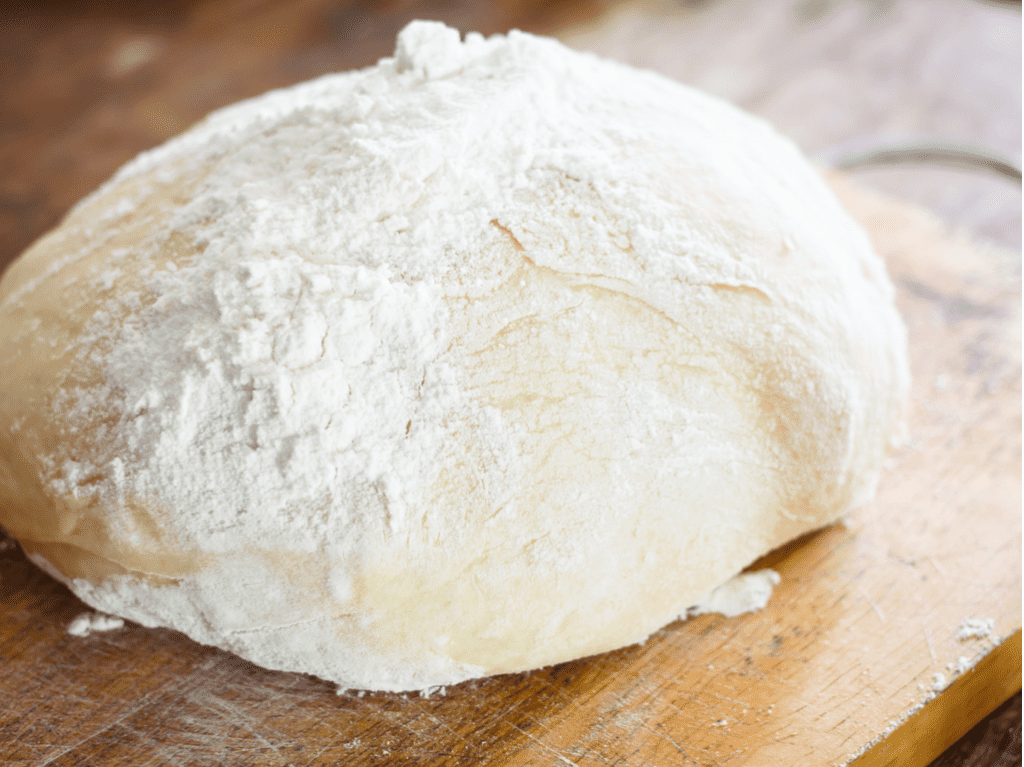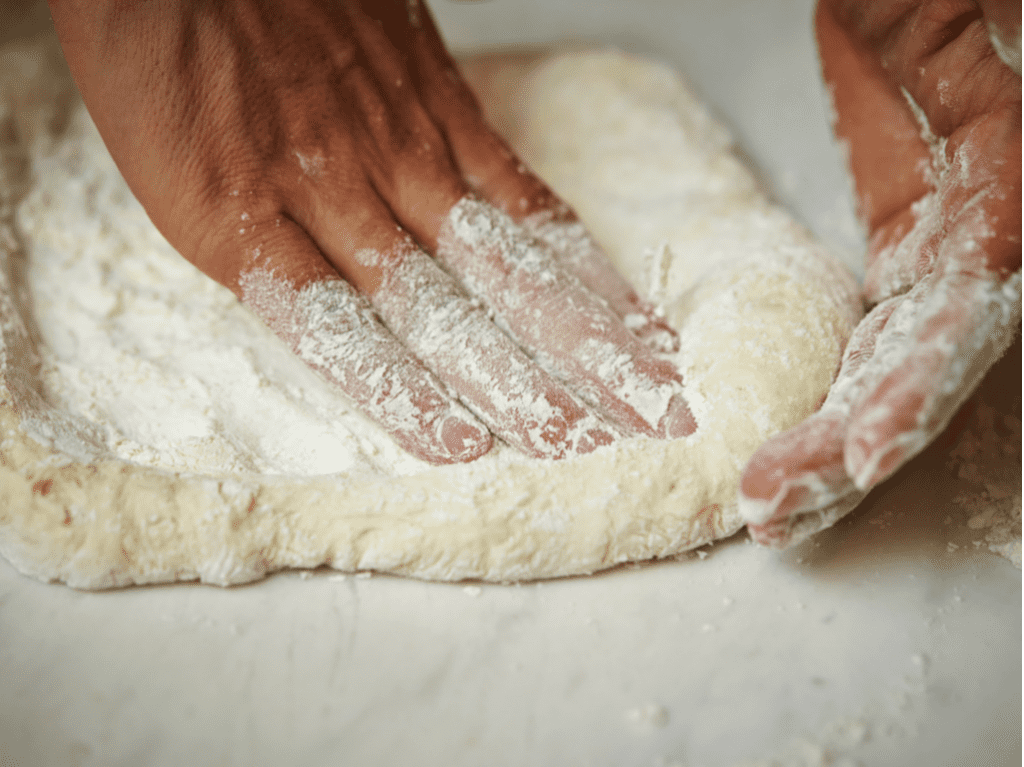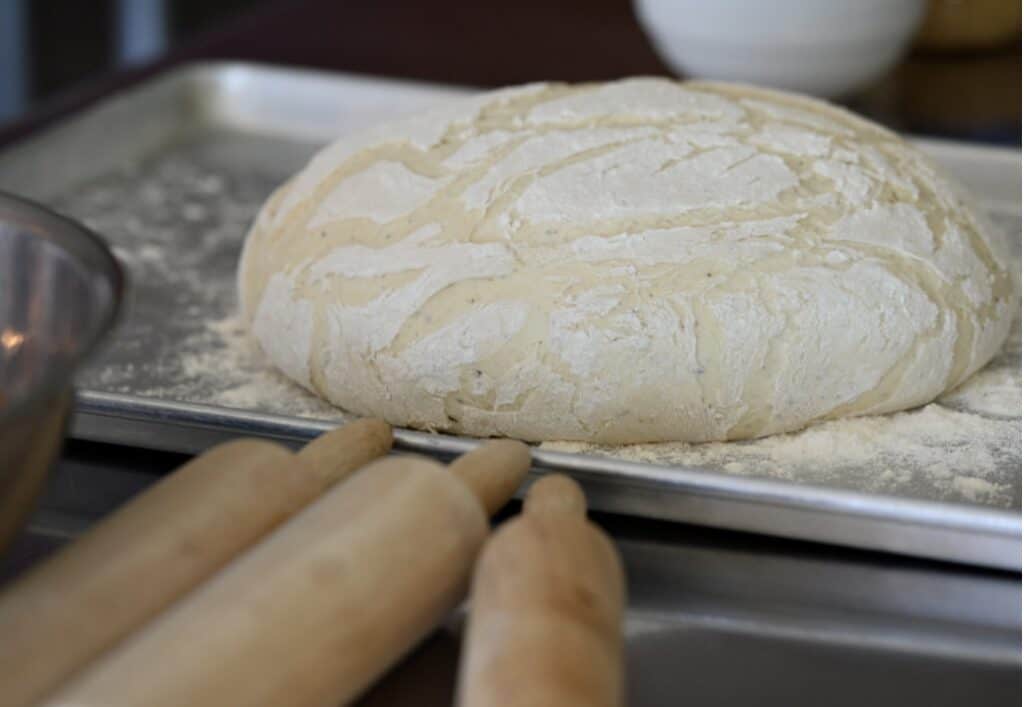So, you were planning on baking an amazing handmade Neapolitan pizza for your family gathering, but then several people cancel, and you’re left with a bunch of pizza dough that’s going to go bad if you just leave it out. Unfortunately, pizza dough isn’t known for being non-perishable. Suddenly, the idea springs to your mind, “Can you freeze Neapolitan pizza dough?”
Actually, yes, you can freeze Neapolitan pizza dough (and any other type of pizza dough, for that matter)! Although a little bit of the original flavor may be lost during the freezing process, keeping your dough frozen is the only option you have unless you want to throw your dough away. As long as you do it the right way, you’ll be able to defrost it on a later day and get back to making that delicious pizza you were so excited about.

In today’s post, I’m going to offer a detailed explanation of how to go about freezing your pizza dough, give you some tips to ensure freshness, and answer some of the more common questions regarding freezing pizza dough. Let’s take a look.
Steps To Freezing Your Neapolitan Pizza Dough
If you were thinking of just tossing your Neapolitan dough into a Tupperware container and throwing it in the freezer, think again. That would result in your beautiful ball of dough getting severe freezer burn within a day or two. If you want to ensure that your dough can stand the test of time, then you’ll need to follow a few key steps to ensure that it isn’t affected by the elements.
Step 1- Mix Your Dough and Make Sure The Yeast Has Been Activated

This step may be a bit obvious, but it’s an important one. If your yeast hasn’t been activated, then there’s no point in freezing your dough in the first place. This is because the cold will kill the yeast that hasn’t activated yet. Your ball of dough will never re-activate once you take it back out of the freezer.
Step 2- Let The Dough Rise Fully In The Refrigerator

The secret to making a great classic Neapolitan or Margherita-style pizza is cold fermentation. Unlike other doughs that are fermented in a warm or room temperature environment, the Neapolitan dough is traditionally left in the fridge between 24 and 48 hours.
Step 3- Freeze When The Dough Has Completely Risen

After the dough has fully risen (the ball of dough should have at least doubled in size), then you can freeze it. Don’t freeze it before then because the dough will not rise any more once it’s frozen.
Tips For Freezing Your Dough
Here are some tips to help you freeze your pizza dough and ensure that maximum freshness is preserved.
Coat The Dough With Oil
One of the best ways to ensure that your dough remains fresh is to coat it with a light layer of olive oil. The oil will not freeze since it’s not water and will provide an airtight barrier around your ball of dough (similar to seasoning a pizza steel). This will prevent any unwanted water or mysterious freezer odors from making their way into your dough.
Use A Vacuum Sealer
After coating the dough in oil. I recommend placing the ball in a vacuum bag and then vacuum-sealing it. Although this process may be a bit tedious, it’s the best way to ensure the freshness is maintained for the long term. In addition to keeping all of the air out, there will be no way for moisture or ice from the freezer to get into the bag.
…Or A Freezer Bag
If you don’t have a vacuum sealer, then I recommend wrapping the ball tightly in saran wrap. Then, place the wrapped ball inside of a freezer-safe bag and do your best to squeeze all of the air out of it. It’s not quite as effective as vacuum-sealing, but it’s the next best thing.
How Long Will Neapolitan Pizza Dough Last In The Freezer?
Once you’ve put your pizza dough in the freezer, it should be able to last for around three months. The better prepared it was before it went into the freezer, the longer it will be able to last. While you may be able to keep it for a bit longer, you’ll notice a significant decrease in taste and quality once you pass the three-month mark. That’s why I always suggest using it as quickly as possible after you freeze it.